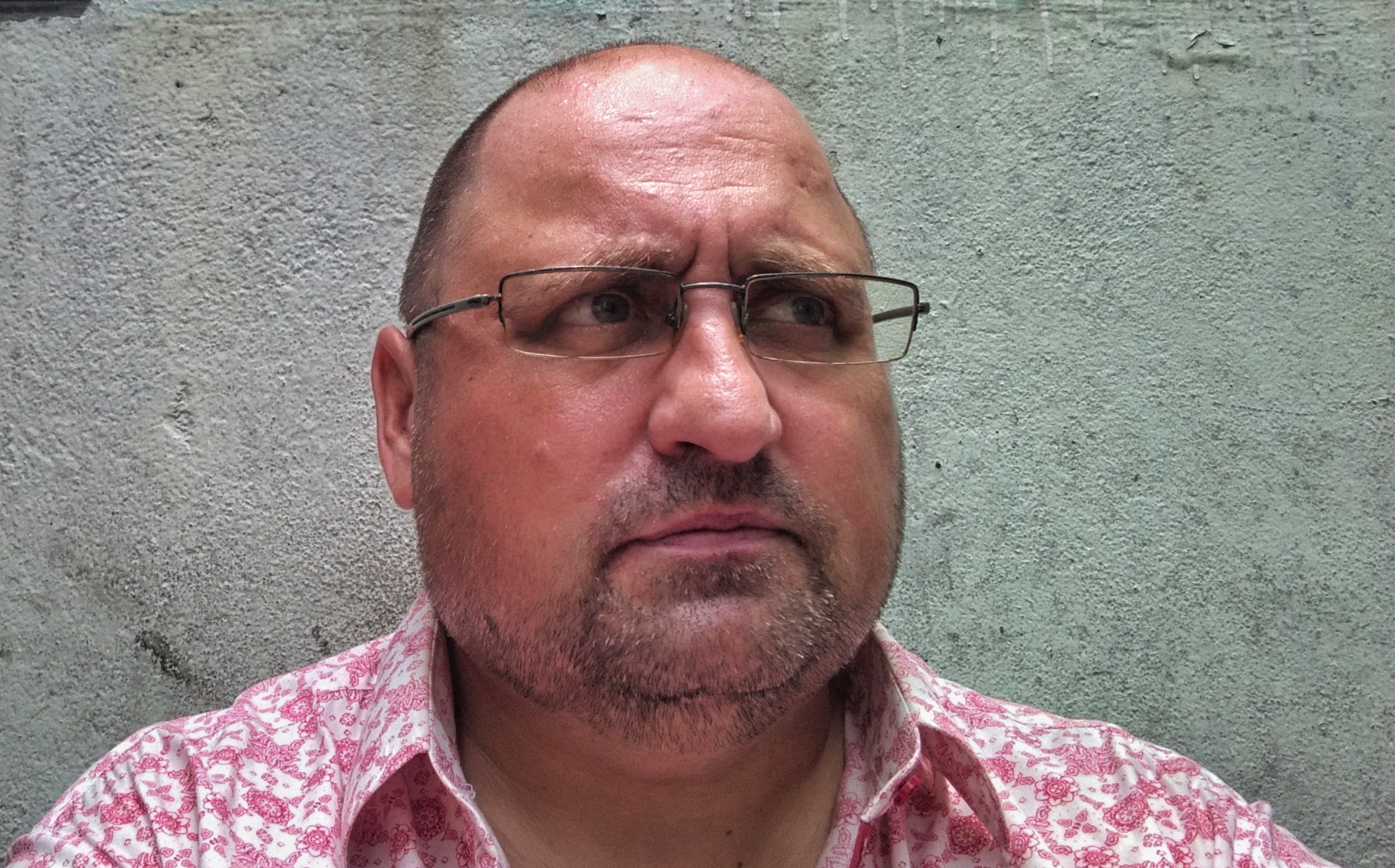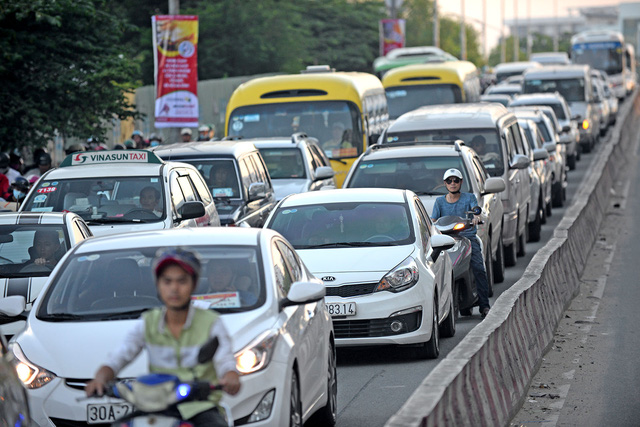Editor's note: A number of foreigners have shared methods that their homeland use to cope with traffic congestion, following a request by Tuoi Tre News after it was revealed Ho Chi Minh City would start charging personal cars in the city center in an effort to reduce traffic.
Congestion charge
In my home town of London, there's been a fee for vehicles to drive into the city centre for the last 20 years or so. Generally it has worked - congestion can still be bad but it would be a lot worse without the fee - and pollution is down. (According to the Transport to London agency, the congestion charge is a GBP11.50 (US$15.24) daily fee for any vehicle within the charging zone between 7:00 am and 6:00 pm, Monday to Friday).
 |
| Philip Genochio in a photo he provided Tuoi Tre News |
It was met with quite a lot of anger at the time but they have no choice, CCTV tracks people driving in the respective zone and they are sent bills to pay. You can also register and pay in advance if you know you are going to be driving in the congestion zone. Rental cars are tracked back to the rental company, and drivers pay the fee with their car rental fee. Regular drivers have special rates and ways of paying. In short, it's a very sophisticated system.
In addition there are a lot of fines and traffic regulations to discourage people from driving. Also parking spaces are limited. I think it's the same in a lot of countries - local governments have been working for many years to control the amount of traffic in city centers, as well as to discourage car usage and encourage other forms of transport.
In the UK, 'park and ride' schemes are common. Rather than driving into a town or city centre, people drive to the suburbs and then take a train or bus into the center. The local governments provide parking space and special train/bus fares to encourage people to travel this way.
In London, public transport has continually been improved to make travel by bus, train and the metro easier.
Living in Ho Chi Minh City for 6 years, I see congestion charges could work if the fees are set at a level that will deter people, for example, a VND10,000 fee won't do anything, and there needs to be a way to guarantee that people will pay. In the UK - like a lot of countries - we have a very sophisticated tracking system. CCTV is everywhere, all vehicles are registered with the government to owners' addresses, and we have a culture of obeying the law and paying fines when we don't obey the law.
So although I can see a congestion charge working in Ho Chi Minh City, the possible difficulties are setting the fee at the right level and having a system to collect the fees. And then it also has to be clear how the money raised will be used. In London, although people don't want to pay, they realize that it helps reduce traffic levels and that the money will be used to help transport infrastructure in general.
I think Vietnam should stop widening roads and building bridges and flyovers. It's proven that this just makes it easier for people to drive cars. Vietnam has a great opportunity to learn from the mistakes of the Western world but doesn’t seem to be paying attention. The rest of the world has been trying to reduce traffic congestion and car usage for over 20 years, but Vietnam seems to be moving in the opposite direction. If they don't act soon, and significantly, it will take years and billions of dollars to make things better.
Philip Genochio from England
Expensive parking fee
 |
| Chang Ching-Ping in a photo she provided Tuoi Tre News |
There are no personal car fees applied to drive into the city center in Taiwan. A similar regulation had just been discussed in Yilan County in the northeastern region of Taiwan, but it wasn’t carried out in the end.
Years ago, traffic congestion was the worst in Taipei and other major cities. In order to resolve it, Taiwan’s government adopted the solution of building the largest metro subway system and setting up an exclusive bus lane.
Taiwan has also provided special discounts to encourage people to take public transportation instead of driving private cars or riding motorcycles. Plus, parking fees are expensive in downtown areas, so most people take the MRT or bus instead of driving private cars or riding motorcycles during peak traffic hours.
Chang Ching-Ping from Taiwan
Personal car fees should be carefully considered
 |
| Kingkamon Sanguanpibool in a photo she provided Tuoi Tre News |
Bangkok doesn’t have a personal car fee plan to enter the city center as there are so many limitations because of the city's structure. However, the city has introduced bus lanes during rush hours, carpool lanes for people travelling to the same destination, switch lanes for Thailand's one-way counterclockwise traffic system and manually controlled traffic lights.
We have also built more roads, connected shortcut roads, and toll ways to help the flow of traffic. Mass rapid transportation for trains across towns using a park and ride system seems to be the major solution for now but still needs improvements to carry more people across more routes. Flexible working time arrangements are also applied.
However, traffic in Bangkok still needs a solution because of the rapid increase in the number of vehicles. Restricting private vehicle travel through a pricing system such as a personal car fee is a consideration but this option would affect people’s daily routines and its consequences would have to be carefully considered.
Kingkamon Sanguanpibool from Thailand



















































